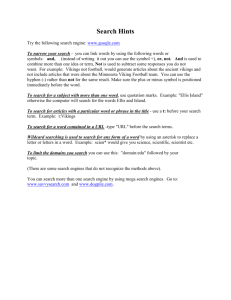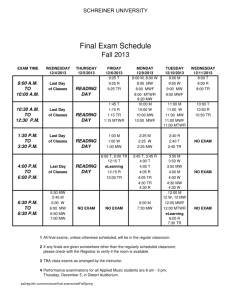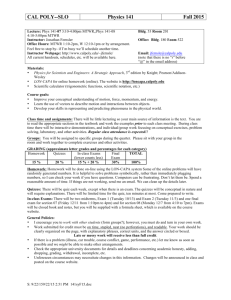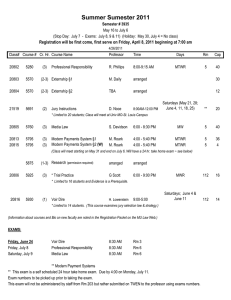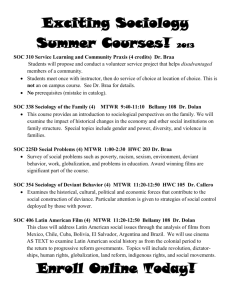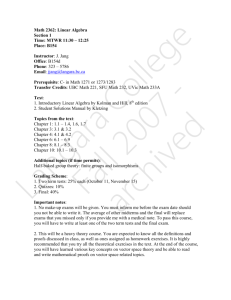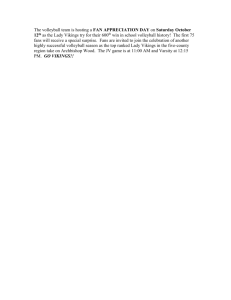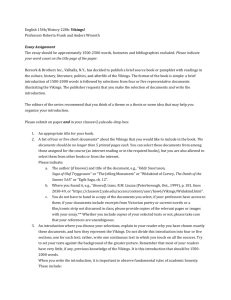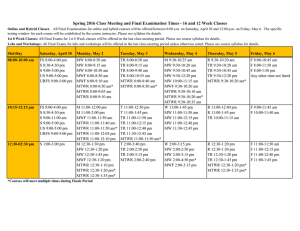HISTORY DEPARTMENT ADVANCED COURSES ...
advertisement
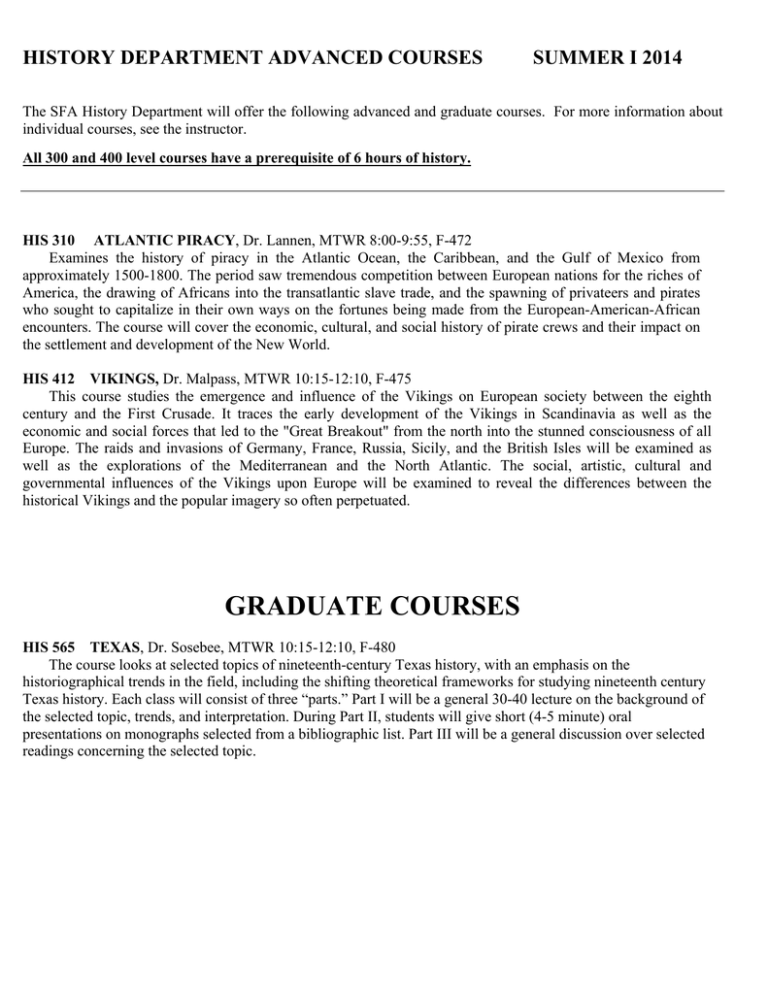
HISTORY DEPARTMENT ADVANCED COURSES SUMMER I 2014 The SFA History Department will offer the following advanced and graduate courses. For more information about individual courses, see the instructor. All 300 and 400 level courses have a prerequisite of 6 hours of history. HIS 310 ATLANTIC PIRACY, Dr. Lannen, MTWR 8:00-9:55, F-472 Examines the history of piracy in the Atlantic Ocean, the Caribbean, and the Gulf of Mexico from approximately 1500-1800. The period saw tremendous competition between European nations for the riches of America, the drawing of Africans into the transatlantic slave trade, and the spawning of privateers and pirates who sought to capitalize in their own ways on the fortunes being made from the European-American-African encounters. The course will cover the economic, cultural, and social history of pirate crews and their impact on the settlement and development of the New World. HIS 412 VIKINGS, Dr. Malpass, MTWR 10:15-12:10, F-475 This course studies the emergence and influence of the Vikings on European society between the eighth century and the First Crusade. It traces the early development of the Vikings in Scandinavia as well as the economic and social forces that led to the "Great Breakout" from the north into the stunned consciousness of all Europe. The raids and invasions of Germany, France, Russia, Sicily, and the British Isles will be examined as well as the explorations of the Mediterranean and the North Atlantic. The social, artistic, cultural and governmental influences of the Vikings upon Europe will be examined to reveal the differences between the historical Vikings and the popular imagery so often perpetuated. GRADUATE COURSES HIS 565 TEXAS, Dr. Sosebee, MTWR 10:15-12:10, F-480 The course looks at selected topics of nineteenth-century Texas history, with an emphasis on the historiographical trends in the field, including the shifting theoretical frameworks for studying nineteenth century Texas history. Each class will consist of three “parts.” Part I will be a general 30-40 lecture on the background of the selected topic, trends, and interpretation. During Part II, students will give short (4-5 minute) oral presentations on monographs selected from a bibliographic list. Part III will be a general discussion over selected readings concerning the selected topic. HISTORY DEPARTMENT ADVANCED COURSES SUMMER II 2014 The SFA History Department will offer the following advanced and graduate courses. For more information about individual courses, see the instructor. All 300 and 400 level courses have a prerequisite of 6 hours of history. HIS 308 INTRODUCTION TO PUBLIC HISTORY, Dr. Beisel, MTWR 10:15-12:10, F-472 This undergraduate-level introduction to public history will familiarize students with the development of the public history field and its place within the broader history discipline. Throughout the semester, students will explore through readings, site visits, and class discussions, the wide range of career options in public history including archives, museums, nonprofit historical organizations, government agencies and programs, and private sector venues such as business corporations and consulting firms. HIS 312 MODERN SOUTH ASIA/FILM, Dr. Chakravartty, MTW 6:00-9:00, G-78 This course surveys the history of Modern South Asia through the lens of Indian cinema ranging from popular Bollywood movies to more critically acclaimed regional films. Indian cinema often evokes images of colorful costumes, and a genre of storytelling that is punctuated with enthralling songs and dances. Beyond all the glitter, Indian cinema is a useful tool to explore social, political, cultural and historical issues. This course is going to use South Asian films and scholarly articles and monographs to explore the complexities of colonial and postcolonial South Asia. HIS 323 WORLD HISTORY II, Dr. Chakravartty, MTWR 12:30-2:25, F477 This course surveys major developments in world history from around 1500 to the present. It will center on a few themes and topics since 1500 in order to familiarize students with world civilizations, such as cross-cultural interactions, migratory movements, ideologies/religions, foreign relations/conflicts, social/political/economic changes and development, colonization and independence Meets an elective requirement for the International Studies minor Meets a requirement for those seeking teacher certification in History for grades 7-12
